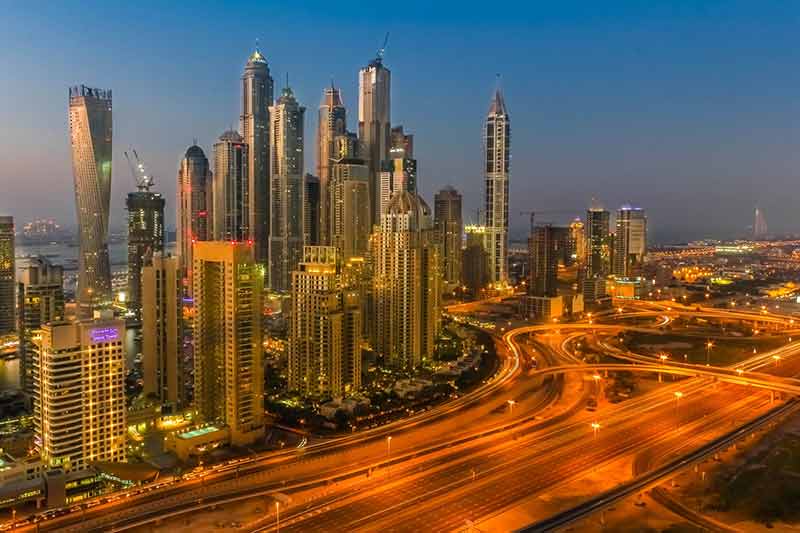
The Dubai Government has unveiled a blockchain project to
improve ease of doing business in Dubai and facilitate foreign direct
investments. The Dubai Blockchain Business Registry Project is a joint
initiative, developed by the Department of Economic Development (DED) in Dubai and
Dubai Silicon Oasis Authority (DSOA), in
collaboration with Smart
Dubai and IBM. The Project is
expected to enhance collaboration and efficiency among government entities and
provide transparency, security and visibility in government transactions.
This initiative is aligned with the Dubai Blockchain
Strategy, launched in 2016 by His Highness Sheikh Hamdan bin Mohammed bin
Rashid Al Maktoum, Crown Prince of Dubai and Chairman of the Executive Council
of Dubai, seeking to establish Dubai as the first city to be fully powered by
blockchain by 2020.
The project aims to streamline the process of setting up and
operating a business, roll out digital exchange of trade licenses and related
documentation for all business activities, and ensure regulatory compliance
across Dubai’s business ecosystem, thereby creating an efficient and seamless
experience.
The initiative seeks to empower the Unified Commercial
Registry (UCR) project, the first blockchain-enabled trade license repository
launched by DED, to store and update company registration information issued by
DED, as well as the free zone authorities in Dubai.
The Dubai Silicon Oasis Authority, which is the regulatory
body for Dubai Silicon Oasis (DSO), an integrated free zone technology park,
will be the first free zone to implement the pilot project and share license
information over blockchain. Other entities will be able to query and publish
data as required.
Sami Al Qamzi, Director General of DED welcomed the Dubai
Silicon Oasis Authority on board as the first free zone entity to integrate
DED’s business ledger and said that the Blockchain Corporate Registry provides
a template for collaboration between government departments, government-related
entities and the private sector to reinforce Dubai as a hub for business
expansion and entrepreneurship.
“The Unified Commercial Registry is a foundation for the
business ledger, led by the Department of Economic Development to usher in the
future of business in Dubai, UAE and the world. With the Blockchain Corporate
Registry, investment as well as doing business in Dubai will become a seamless
and smart experience, and testimony to successful innovation,” he commented.
The IT Department in DED conducted extensive research and
case studies with vendors to explore the available alternatives and options to
help secure information, support open data and enable paperless processes in
preparation for the Dubai Blockchain Corporate Registry.
Mohamed Alqaizi, IT Director in DED, said, “The Blockchain initiative is a
result of intensive research conducted by our IT team in collaboration with
DSOA, IBM and the Smart Dubai office. We studied multiple options, case studies
and researches aiming to achieve the best results in facilitating business
registration in Dubai. The results are promising; we built the foundation for a
first-of-its-kind unified business ledger where any entity locally and globally
can join, and be part of Dubai’s vision to be the Blockchain capital of the
world as part of the Dubai Blockchain strategy 2016.”
Amr Refaat, General Manager, IBM Middle East said: “IBM is
proud to collaborate with DED, Smart Dubai Office and Dubai Silicon Oasis on
this journey to revolutionize the business ecosystem in the UAE. Dubai is a
leader in innovation with many ambitious projects that have already become a
reality. With the first phase of this project already in place to form the
first active Blockchain commerce registry network, there is keen interest from
other public and private entities to join the network.”
Dr. Aisha Bin BIshr, Director General, Smart Dubai, said:
“Having 100% of all applicable Dubai government transactions run on Blockchain
is the first pillar of the Dubai Blockchain Strategy, and ongoing collaboration
with government and private sector entities is crucial to our success. The
launch of the Commercial Registry Project is testament to our drive towards
making Dubai run on Blockchain by 2020.”
She further revealed that Smart Dubai is working on over 20
use cases with several entities across the city, and these are expected to be
launched later this year.
Dubai Blockchain Strategy
In December 2016, the Dubai government announced the Dubai
Blockchain Strategy, establishing a roadmap for the introduction of Blockchain
technology for Dubai and the creation of an open platform to share the
technology with cities across the globe. The vision is to transform Dubai into
the first Government in the world to execute all applicable transactions on the
Blockchain by 2020. E
It is estimated that adoption of Blockchain technology can
save Dubai 5.5 billion Dirham (US$1.5 billion) annually in document processing
alone. Several government agencies in Dubai have significant progress in the
area.
In April 2017, the Smart Dubai Office has signed a
Memorandum of Understanding (MoU) with Avanza Solutions to implement a citywide
blockchain based payments platform. In June, the Government of Dubai signed
an agreement with a UK-based startup, ObjectTech, to develop digital
passports for seamless entry at Dubai Airport, combining biometric verification
and Blockchain technology.
In October 2017, the Dubai Land Department (DLD) became the
world’s first government entity to implement all of its transactions through
blockchain technology. DLD has created the Blockchain system using a smart and
secure database that records all real estate contracts, including lease
registrations, and links them with the Dubai Electricity & Water Authority
(DEWA), the telecommunications system, and various property related bills.
In late October, the Dubai Internet of Things (IoT) strategy
was launched,
seeking to build the world’s most advanced Internet of Things (IoT) ecosystem
in the world’s smartest city to improve people’s lives. Blockchain plays a key
role in the final phase of the strategy which will witness the full integration
of IoT policies and the first ROI (Return on investment) of the strategy.
The first phase involves coordination of efforts and activities to
implement IoT policies across government departments. In the second phase, the
focus is on Integration and Conversion, seeks to harmonise efforts. The
third phase will focus on optimisation.
In April 2018, Dubai’s Department of Tourism and Commerce
Marketing (DTCM) launched Tourism
2.0, a blockchain-enabled marketplace that connects potential buyers directly
to hotels and tour operators. As a business to business (B2B) marketplace, it
will allow hotels and tour operators to connect directly.
Later in the same month, the Smart Dubai Office announced
the launch of a blockchain-powered decentralised learning platform, in
collaboration with the Dubai Future Foundation (DFF), to support the development of
digital skills and prepare individuals for careers in the economy of the
future.
In April, the Dubai Culture and Arts Authority (Dubai Culture) also launched a blockchain-powered digital bank for art.
















